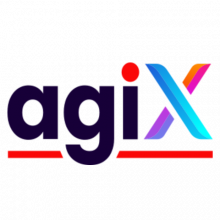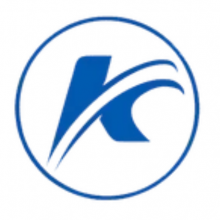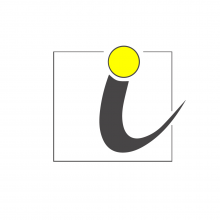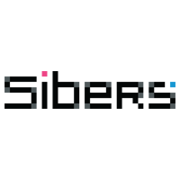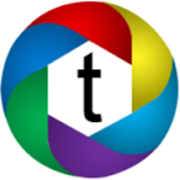Explore Top Selenium Companies in United States
Use the advanced filter to find companies near you or refine the results Last updated in: January, 2026
Experts in AI agent automation, product discovery, and software development for businesses that need to scale.
Digital eCommerce Agency | End-to-End Web Solutions Provider | IT Consultancy | IT Staff Augmentation
Agix Technologies is a global AI development company offering scalable solutions in automation, generative AI, and machine learning.
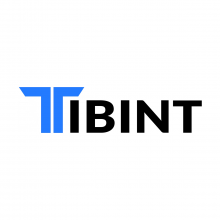
TIBINT (Tiberius Interactive) Verified Company
Miami, United States Head office in: United States
TIBINT turns complex ideas into reliable software and measurable growth. Trusted tech partner delivering clarity, speed, and results.
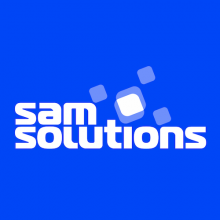
SaM Solutions Verified Company
Norwood, United States Head office in: Germany
SaM Solutions is an international provider of IT services and software solutions with over 30 years of experience.

California, United States Head office in: India
CoinsQueens is a well-known web3 and blockchain development firm.
Services:

Prometteur Solutions PVT LTD Verified Company
San Francisco, United States Head office in: India
Where Expectations Meet Promises
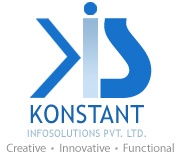
Konstant Infosolutions Verified Company
New York, United States Head office in: India
App Development Company for Startups & Enterprises
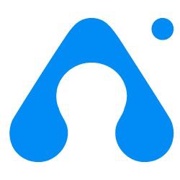
San Jose, United States Head office in: India
Leading Software and Mobile App Development Company

Massachusetts, United States Head office in: Lithuania
SoftTeco is a one-stop provider of custom software solutions and dedicated development team services for businesses across various domains.
K Tech Clans provides top-tier web and mobile design, development, and marketing services with a seamless, balanced approach.

CLAYMONT, United States Head office in: United Kingdom
Human-centred web & mobile apps for health, education, wellness and IoT — clear process, honest delivery, products people enjoy using.
Intactdia delivers innovative web solutions and digital marketing that help businesses grow online, making premium results accessible and affordable.

Houston, United States Head office in: United Kingdom
Your total tech ally for the AI age 18+ years of experience | 1000+ successful projects | 30+ prestigous awards for innovation
Lucent Innovation empowers businesses with e-commerce, web, software, app, and data-driven solutions to fuel growth and operational excellence.
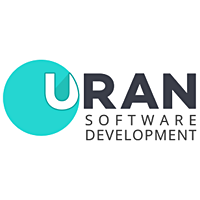
Parker, United States Head office in: Bulgaria
Custom software, app and web development company. ✉ - [email protected]🌎
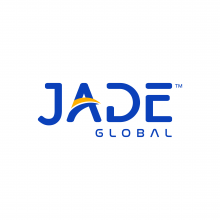
Philadelphia, United States Head office in: United States
Trusted IT Services and Cloud Consulting Partner for 20+ years to Propel Growth for Businesses through an Accelerated Digital Transformation Journey.
Garraje 360° Digital Agency
Services:
Taking the Risk Out of IT Innovation
Your Strategic Partner for an AI-Native World
A US based web and mobile application development company providing innovative solutions.

Beaverton, United States Head office in: United States
Unique Software for Your Unique Business

Codeflash Infotech LLP Verified Company
Vermont, United States Head office in: India
We are the top custom web and mobile app development company in India, the USA, the UAE, Canada, and Australia.
Innovative ideas that have yet to be discovered!
Filter Selenium Companies in United States by Cities
Find the right tech company near you or from a specific city. Some of the best companies might be located in smaller cities.
Find more Selenium companies around the world
TechBehemoths is the world's most advanced and user-friendly platform to match IT Companies with real clients without hustle.
ICT in the United States: General Profile and Insights
The United States has probably the most advanced software and information technology (IT) services industry in the world. More than 40 percent of the $5 trillion global IT market is in North America, primarily the United States. The industry accounts for $2.1 trillion of U.S. value-added GDP (more than 10 percent of the national economy) and 702.276 jobs. According to CompTIA, there are more than 700,000 software and IT services companies in the United States.
The average net salary of a web developer in the US is around $82,532 annually. On the other hand, the hourly rate is nearly $33.47, which makes it one of the best-paid jobs in the world within the IT industry.
Why Should You Work With American Web & Software Development Companies
U.S. software development companies operate in a mature, harmonized market and have a reputation for producing reliable and effective solutions that quickly accelerate to the marketplace. International companies in the industry have shown interest in the U.S. market because of its strong intellectual property rights laws and enforcement. U.S. companies lead the world's packaged and custom-software markets and are competitive in nearly all other market segments with a stable overseas market share.
What You Should Be Aware of When Working With a US-based ICT Company
Having a large IT market has both advantages and disadvantages. While offering a wider variety of US IT companies to choose from is one of the biggest advantages the U.S. has to offer, the challenge for potential clients and partners of the U.S.-based web & IT companies is that the industry development is not equally distributed across all states and cities. For example, many tech companies are relocating to Texas from Silicon Valley. This is why it’s good to have in mind the most important U.S. IT hubs and focus on choosing the most suitable one depending on your needs.
How Reliable are US-based IT Companies
Based on a report delivered by CompTIA in 2020, which is still relevant for 2025, the changes in the global IT market that make competition in this area tougher, U.S. companies will focus more on three development pillars:
- Training and Certification of professionals in their existing tech skills
- Training and Certification of professionals in new tech skills
- Career growth and project management.
This means that the market is saturated with the workforce, and there is a small probability that companies will increase their hiring rate for new professionals. However, intensive and extensive skills development of U.S. tech professionals will increase the capacity and attractiveness of U.S. IT companies and web agencies. Additionally, this will improve the already well-developed abilities to deliver high-end products and services in the IT field.
How Does the US IT Industry Relate to the Neighboring Countries
Considering that the US has probably the most developed IT infrastructure, the industry will keep its position for at least 3 years. On the other hand, the rising numbers of IT companies from Canada and Mexico come in contrast with what US companies have to offer. In other words, clients still have to choose between US companies and neighboring countries as the offers differ in quality and ways of executing projects.
Overall, the US IT industry is in leading positions in different sectors, and combined with an authentic business culture, will probably continue to keep its attractiveness. Although companies from the U.S. are flexible and are always adjusting to market requirements, the global market still remains unpredictable, which may lead to significant changes in the future.
US Tech Industry Outlook for 2025 and Beyond
The US is still leading the world with its cutting-edge technologies, despite some narratives. The expected revenue for the market of IT Services in the US is $563.94 billion by 2025, with a CAGR of 3.73% from 2025-2030, according to Statista. The biggest segment of this segment is IT Outsourcing, reaching $218.02 billion by the same year. This sector has an increased demand for solutions in cloud computing and cybersecurity services.
Artificial Intelligence will influence the tech sector in the US, with only the Generative AI contribution to GDP of $7 trillion in the next 10 years, and it can save up to $1.4 billion for the federal government.
The US is keeping its position in scientific research, graduate education, AI firms, and competitiveness. The US tech sector’s future focuses include AI, increasing cybersecurity & cloud computing.
What is Selenium and what are its benefits for your projects?
Selenium Framework is an automation testing toolkit and features based on JavaScript innovations. Created for web automation and testing purposes, but has other functions, like optimizing efficiency and making the working processes more manageable. It offers consistency and makes it possible to handle complex test cases.
Selenium can run tests directly in the browser, imitate user engagement on the site, and repeat tests automatically. This led to eliminating repetitive work, saving time and resources. It supports practices like Agile and DevOps, which focus on permanently delivering software updates.
This framework comprises four key elements: Selenium Remote Control (RC), Selenium WebDriver, Selenium IDE, and Selenium Grid. There are multiple types of Selenium Frameworks, for example, Data Driven Framework and Modular Based Testing Framework.
Selenium is the most globally used automated framework, holding 39% of the test automation market.
What are the benefits of using Selenium for your project?
Selenium is more powerful when combined with tools like BrowserStack, allowing users to perform cross-browser testing on real devices without needing to manage physical machines. This framework is used for multi-language backup, browser compatibility, open-source, zero fees, and smooth integrations. Your project can leverage the benefits of using Selenium for your project, and they are the following:
- Free and open access software
- Authentic browser testing
- Supports various coding languages
- Customization in test case planning
- Compatibility with multiple platforms
- Tools integration options
- Collaborative support and resources
- All-in-one testing system
- Potential for growth and simultaneous testing
How to choose the right Selenium platform?
To select the right Selenium platform for your project, you should consider the type of tested application, the level of testing, and what is the coding language used. Besides these, you should consider the following criteria:
- Technical skills: Frameworks from Selenium require some coding skills, so your project needs to find a platform that can deliver the needed tech stack.
- Evaluate budget and ongoing support: Selenium is a budget-friendly framework that may require additional customization. Take into consideration features like self-recovery, simple test-case updates, and script reuse. This can lead to time savings and other resources. Look for platforms that have these features.
- Consider reporting and integration: These 2 features are crucial for your project's well-being. The used framework should integrate easily with your tools. Reporting with screenshots, video, and error traces is very important for bug elimination. Choose a Selenium framework that can ensure you address these considerations.
- Scalability: Your project will be in continuous growth, so the selected platform must keep up with it.
- Community engagement and support: Selenium is an open-source infrastructure that has a robust community and client support. Search for platforms that can offer you access to tutorials and community resources.
By meticulously evaluating these aspects, you can make a calculated decision and choose a suitable Selenium platform for your project. Also, you can benefit from the various perks that the Selenium Framework provides for your company, which is an investment for long-term progress.
There are almost 300 Selenium platforms from 70+ countries worldwide on TechBehemoths. This platform has a detailed filter option, giving the possibility to choose from hourly rates to the desired destination. Unbiased ratings and reviews are also present on TechBehemoths, helping you choose more efficiently.


